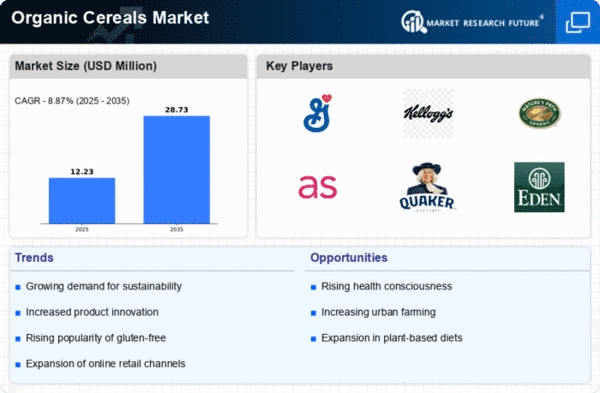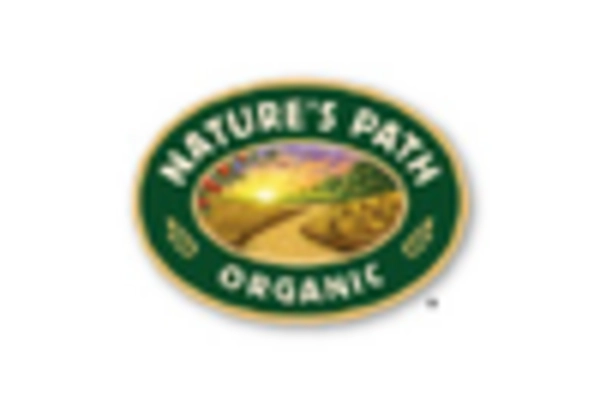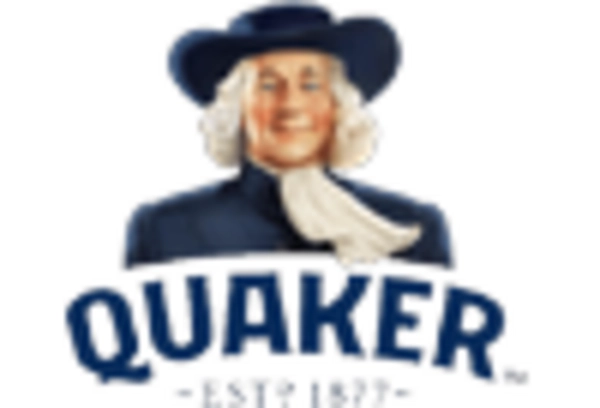Market Analysis
In-depth Analysis of Organic Cereals Market Industry Landscape
The market dynamics of the organic cereals market are shaped by a combination of factors that influence supply, demand, and overall industry trends. One of the key drivers is the growing consumer awareness and preference for healthier food choices. As individuals become more conscious of the potential health risks associated with conventional farming practices, there is a notable shift towards organic cereals that are free from synthetic pesticides, GMOs, and artificial additives. This increased demand is encouraging manufacturers to expand their organic product offerings and invest in sustainable farming practices.
Regulatory factors also play a significant role in shaping the dynamics of the organic cereals market. Governments worldwide are implementing stringent regulations and certification standards to ensure the authenticity and quality of organic products. Compliance with these standards not only instills confidence in consumers but also acts as a barrier to entry for smaller or less reputable players. The presence of established certification bodies, such as USDA Organic and European Organic Certification, contributes to the overall credibility of the organic cereals market.
Economic factors, including disposable income levels, influence the purchasing behavior within the organic cereals market. As disposable incomes rise, consumers are more willing to allocate a portion of their budget to premium and organic food products, including organic cereals. However, the price sensitivity of consumers remains a challenge, and companies often need to strike a balance between offering high-quality organic products and maintaining competitive pricing to cater to a broader consumer base.
The global supply chain and sourcing practices are crucial components of the market dynamics. Companies in the organic cereals market need to ensure a stable and high-quality supply of organic ingredients. Sustainable agricultural practices, fair trade, and ethical sourcing play a key role in maintaining the integrity of the organic cereals supply chain. Fluctuations in the availability of organic raw materials or disruptions in the supply chain can impact the market dynamics, influencing pricing and product availability.
Technological advancements in agriculture and food production are driving innovation in the organic cereals market. Precision farming techniques, sustainable agricultural technologies, and advancements in organic farming practices contribute to increased efficiency and productivity. These technological developments not only benefit producers but also impact the overall sustainability of organic cereal production, addressing concerns related to environmental impact and resource utilization.
Consumer trends and preferences significantly shape the market dynamics of organic cereals. The demand for diverse flavors, textures, and nutritional profiles prompts manufacturers to continually innovate their product offerings. Gluten-free options, cereals enriched with superfoods, and those catering to specific dietary needs are gaining traction as consumers seek more customized and health-focused choices. Companies that can adapt to these evolving preferences are better positioned to capture market share and maintain consumer loyalty.
Global trends, such as the rise of plant-based diets and the emphasis on sustainability, further impact the market dynamics. Organic cereals, being inherently associated with sustainable and environmentally friendly farming practices, align well with these trends. As plant-based lifestyles gain popularity, the organic cereals market stands to benefit from the increasing demand for plant-based and sustainably sourced food options.


















Leave a Comment